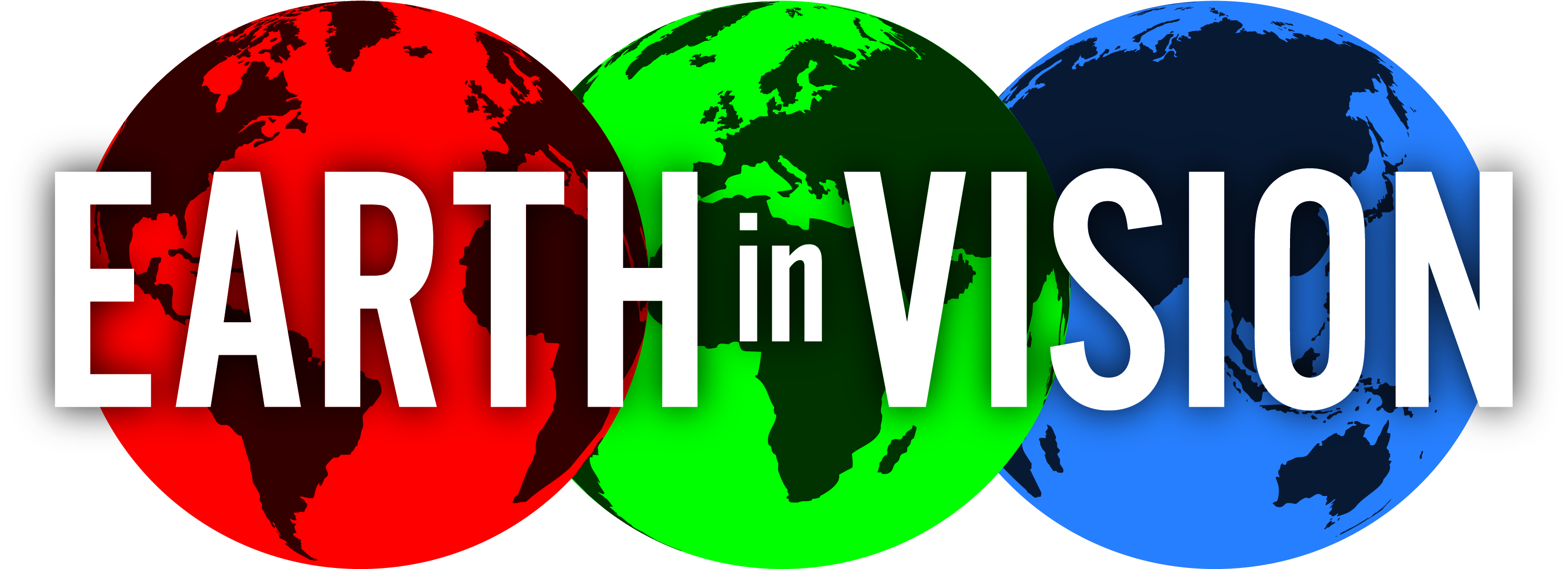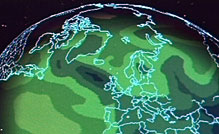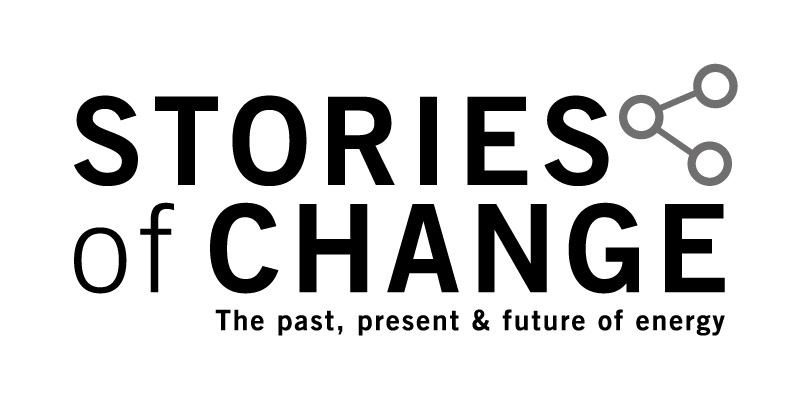Dan Rees
Dan has worked at the BBC Natural History Unit since 1997, producing, directing and filming across a wide range of genres, from pure animal behaviour to live and documentary. His credits as producer/director include the award-winning ‘On Thin Ice’ episode of Frozen Planet, presented by Sir David Attenborough, and Ganges: Waterland. As series producer his credits include Atlantic and Wild Arabia.
Transcript
Earth in Vision Project
Wildscreen, 20th – 23rd October 2014
My name is Dan Rees, I’m a series producer at the BBC Natural History Unit.
How I learned to love wildlife
I can’t remember a time when I wasn’t fascinated by animals. I guess that probably comes from my parents, particularly my dad, being interested in animals and always showing me things like caterpillars chewing away on leaves as a very young child. I do remember developing a passion for Gerald Durrell from probably about the age of five, six, and reading all of his books avidly, so I’d say he is the person who is probably most responsible for my passion for wildlife and the environment.
Wildlife television: What inspired me?
There are so many great natural history series, so many great environmental programmes that have been made over the years, it’s very difficult to pick out individual ones. Life on Earth was a huge influence on me, as it was, I think, for an awful lot of people who were around in 1979 when that came out, because it changed the game so radically, it was so new for everybody. I was only eight at the time, but I was still blown away by what I was seeing on the screen, so that was a massive, very powerful memory for me in terms of a natural history series.
Environmental issues: What series inspired me?
Environmental series and programmes, or ones that are overtly tackling environmental issues, again there’s lots of great ones of those around. Most recently, I think, Fish Fight, the Hugh Fearnley-Whittingstall’s series, was remarkable and its impact and how far it managed to go in terms of harnessing social media and harnessing campaigning around that issue. I thought that was a tremendous bit of programming and very inspiring.
What I’m most proud of…
From my own perspective of a single piece of work I’m probably the proudest of was the final programme of Frozen Planet called On Thin Ice, which was a show about the effects of climate change on the Poles, both the Arctic and the Antarctic. It was presented by David Attenborough. I’m particularly proud of it because we managed to reach a mass audience; an awful lot of that audience had been built through the whole series of Frozen Planet, which obviously was tremendously popular, reaching millions of people, but there was always a very big risk with that show that we would lose them in the final episode, but we didn’t, we managed to keep them, and not just keep from the beginning of the show, we kept them all the way through the hour, and I’m proud that we managed to do that and we managed to do that through good storytelling, through fantastic images and through keeping a tone that wasn’t doom and gloom, it wasn’t preaching, it was just going out there and reporting on what we see in the world.
And in conversations I’ve had with Sir David, that’s the thing I’ve taken away the most, his feeling is that perhaps what we don’t do enough is just do that, just go out and report on what we see in the world. You don’t put a value judgment on it, just go out there and show it, make it a compelling story, make it a good watch; you don’t have to tell people whether it’s good or bad, just show it and let people draw their own conclusions. And that’s what we tried to do in that programme and like I say, it engaged an awful lot of viewers on a very important subject, who probably wouldn’t typically be watching programming around that subject, so I’m proud of that.
Mixing environmental issues with blue-chip natural history
I think the distinction that people make between blue chip natural history programming and environmental programming, it’s an interesting one, I think often when people talk about blue chip programming, what they really mean is behaviour-led programming. If you’re making a programme that’s about animal behaviour, different sorts of animal behaviour, it would be kind of strange to suddenly start talking about climate change or pollution, so I think it’s legitimate that those sorts of programmes don’t necessarily need to address those issues; it would be a strange thing to do.
That said, there’s an awful lot of middle ground between behaviour-led programming on the one end of the spectrum and perhaps a current affairs documentary or quite a hard-hitting documentary about environmental issues at the other end of the spectrum. So in between, when we make a lot of our series about places, at the moment I’m making a series about the Atlantic, for instance, which is about the whole of the Atlantic and it’s about all of the influences on it, so it will feature animals and animal behaviour, but it’s also going to feature forces of nature and people. So within that show, which is what they call a mini landmark show, it’s designed to be high production values and reach a mass audience, but obviously we’ve got plenty of scope within there to talk about environmental issues, so I think it’s perfectly legitimate to include those within the narrative. It doesn’t need to be approached again in a way that involves value judgments or frankly makes people feel rather depressed, but I think just telling people what’s happening as part of the big picture in a fairly neutral way works fine. You’re not going to lose your audience by doing that; the audience knows that the world has issues that say the Atlantic Ocean is polluted or is being affected by climate change. It’s not a surprise to learn that. If the whole show was about that, I think you’d put off a lot of the audience, but if it’s just mentioned in a couple of shows, I think it would be wrong not to do that, because we need to give a complete picture.
Natural history, climate change and the future
Scenarios of the future are difficult to tackle on TV, I suppose, because certainly in the Natural History Unit which is where I work, our mantra is, ‘Show, don’t tell,’ and we can’t show the future, needless to say. So you’re immediately in a situation where it’s challenging to get those across, particularly in a show that you’re hoping to achieve a mass audience with. The question of whether we do it enough, whether we could do more to do that, it’s difficult; is that really the remit of natural history programming? I’m not sure that it is. I’m not sure if that doesn’t belong more with current affairs and documentary programming rather than natural history, simply because of the shape of the shows we tend to make.
Natural history television and the decline of the natural world
Has natural history programming done enough to reflect the fact that there’s been a 50% drop in species over the last forty-odd years? I think that’s out there in the public awareness. I think if you asked most people, “what’s the state of the environment? What’s the state of biodiversity?” I think most people are aware that it’s in trouble, that it’s dropping severely.
I think that the number of stories about that have probably dropped, interestingly, since the recession. I think it tends to go cyclically depending on how people are feeling in terms of their economic status and their self-interest at home, so I’m not sure what can be really done about that in terms of how people continue to keep the environment high on the agenda when there is other pressing political issues out there. It’s always very difficult, I think, to make that connection between the environment and biodiversity and people, people’s wellbeing. So I think it can tend to feel like more of a niche interest, more of a niche area when there are some of the other pressing issues around.
Has natural history programming itself done enough to reflect the decline in species over the last forty years? I think it’s interesting to address that in the UK context versus the international context. I’d say probably in the UK I think possibly we haven’t and yet we’ve done an awful lot more in this country than we have overseas, because we have such a strong public service broadcasting culture. If you go to the USA where they don’t have such a strong public service culture, they’ve done a heck of a lot less than we have to reflect the decline in species, so perhaps we haven’t done as much as we could have done, but we do operate in a world where we do have to achieve certain audience figures, so it can be very challenging to get those programmes commissioned. The remit of commissioners on BBC 1, BBC 2, ITV, Channel 4, is to get audiences and they have to get a diverse range of programming and they have to get audiences, so they are always taking a risk when they commission environmental programming. So I wonder if the onus needs to be more on producers to find good stories through which we can really explain these issues. The issues themselves don’t sell; it’s the stories that sell. We’ve got to find… and that’s producers, that’s everybody who’s interested in trying to get these issues across, so that’s the NGOs, the conservation charities, they can help producers, they could help commissioners on channels to address these issues if they can come up with the good stories, think how is this going to appeal to an audience? And that, I think, is the way we can get these issues covered more on television.
Using archive
Archive is becoming more and more important in making our shows and that extends right up into the blue chip, expensive, glossy programmes, both because we have so much of it now, every series we make, particularly the big series, Frozen Planet, Life and so on, they generate a huge amount of rushes, most of which is extremely good quality, but you can only use an hour and you might have hundreds of hours that’s hitting the cutting room floor. So it is particularly important and especially because budgets are dropping, in real terms the BBC budget has taken a big hit recently and the international money that’s coming from co-producers is also dropping, so we need to rely on our archive in order to keep the quality of our programmes up.
BBC natural history archive: Should it be made available to the public?
In terms of opening up our BBC archive to the public, I’m speaking here from an individual perspective, not on behalf of the BBC, my personal opinion is we should think about opening up a whole lot more than we currently do. We are doing that, the BBC archives are opening up gradually. Should we do more? Well one argument is that the British public has paid for it, it’s theirs, shouldn’t they have access to it? There are issues when you look at that internationally, because only the British public has paid for it, internationally it’s been paid for by commercial organisations, so any opening up of the archive has complexities in terms of how you control access to it and geo-block it and there are technical issues of course around opening it up. And if we were to open it up, it needs to only be accessible to not for profits, educational charities and so on, but I think there’s a very strong argument for giving greater access to it.
Opening BBC natural history archive online – the benefits
I hope if we opened up our archive online it would be very good news for educators, it would be very good news for conservation charities who are constantly struggling to find the quality of images that they need in order to really get across the value of their projects. It would also be good from an educational perspective, for aspiring filmmakers to be able to use really top quality footage, it’s tremendously valuable, so that’s ultimately good for our industry if it allows people to… you know, up and coming people who might end up working in the Natural History Unit, if they can have access to good footage and start making films, well that’s a very good talent pipeline for us.
Planet Earth: Optimist or pessimist?
I think I’m getting more optimistic as I get older, strangely. In terms of the future of the planet, I probably was a lot more pessimistic when I started off in this business and obviously there’s a huge number of enormous challenges out there, but I think during the course of my career, I’ve seen environment become a lot more mainstream. Everybody knows about climate change these days, everybody knows about pollution, everyone talks a lot about where their food comes from in ways they didn’t used to do, so I think there’s cause for optimism in all of that, people care. And also I think when I started off I felt very much like it was the environmentalists against the world, but I’ve got lots of friends who work for big corporations and they’re all very good people, they’re all aware of these issues and they all care. And you see more and more corporations embracing sustainability, not perhaps because it’s good for their profit margin, but because it’s what they want to do, they think it’s the right thing to do. So I think we’re starting to see that happening in the world, so that’s got to be cause for optimism in my view.
Explore more...
-

Earth in Vision
Learn more to access more details of Earth in VisionInterviews with media producers, from the icons Sir David Attenborough & Desmond Morris, to new digital natives. This is an important historical collection and a powerful resource for anyone wanting to make or think about environmental media.
External link
-

Creative Climate
Learn more to access more details of Creative ClimateHarnessing the power of creativity to tackle environmental challenges—an ambitious long-term diary project from The Open University
External link
-

Stories of Change
Learn more to access more details of Stories of ChangeThese interviews have been recorded by the BBC’s Environment Analyst Roger Harrabin, and they capture the thinking of leading players in climate change and energy debates at a critical moment in the global conversation.
External link
Rate and Review
Rate this video
Review this video
Log into OpenLearn to leave reviews and join in the conversation.
Video reviews